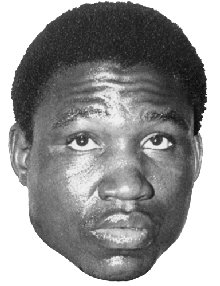
























Dick Tiger (born Richard Ihetu; August 14,
1929 - December 14, 1971) was a professional boxer who held the World
Middleweight and World Light Heavyweight Championships.
A Nigerian
who emigrated to Liverpool and later to the United States, Tiger was
an ethnic Igbo. Tiger was a boxer, commercial venturer, and Biafran
rebel.
Professional career
Tiger became a two time undisputed
world middleweight champion and helped keep boxing alive during the
1950s boxing industry recession. Tiger won the world middleweight
title when he beat Gene Fullmer in 1962 and the light heavyweight
title in 1966 when he dethroned Jose Torres of Puerto Rico.
Prior to these accomplishments, however, Tiger seemed condemned to poor management and a resulting lack of exposure. In 1957, using Liverpool as his fighting base, Dick Tiger was fighting on undercards for small purses, when by fortune, facing off against popular favorite Terry Downes at Shoreditch Town Hall, he walked away with a TKO after 6 heats. New management saw to it certain "errors in his style" were corrected, and in another year, Tiger had taken 17 of 19 fights and won the British Middleweight title. In 1959, handled by the independent Jersey Jones, Tiger came to America, to face adversity in a whole, new way. Jersey Jones, resisting the influences of Madison Square Garden, brokered deals for Tiger by himself, which in the short run, cost them both. In an independent promotion at Edmonton, Alberta, Tiger's Empire belt was lost in a more-than questionable 15 round nod to local challenger Wilf Greaves. The decision as rendered, had first been called a draw; appalled, Jones demanded a recount of the cards, which boomeranged, showing the fight, dominated by Tiger, as a win for Greaves. Tiger, sincere and honorable in his dealings, often found this virtuous approach not reciprocated, particularly in North America.
A.J. Liebling, impressed in witnessing Tiger's 1962
performance versus Henry Hank of Detroit, described the fighter's
appearance thus, "...a chest like an old fashioned black office safe,
dropping away to a slender waist, big thighs, and slender legs; he
boxed classically, his arms tight against his sides at the beginning
of a punch, his savagely methodical blows moving in short arcs and
straight lines."
Such a description was similarly evoked, albeit
in simpler terms, by Tiger's contemporaries. Gene Fullmer: "Tiger
was a rough guy...I went to Nigeria to fight him, and , of course,
I don't know what happened over there...He beat me. He beat me bad.
My mother and father could have been judge and referee, and I couldn't
have won a round. Joey Giardello: "I thank Dick Tiger because Dick
Tiger was a man and Dick Tiger gave (a title shot) to me. He didn't
have to give it to me. He could have given it to somebody else.: An
additional comment from Giardello, in the form of a sarcastic bon
mot, showed contemporary respect for Tiger as a fellow battler. The
pair fought 4 times in all, the last two of these in swapping the
middlewight title. Every fight went the distance, meaning that in
terms of time, Dick Tiger and Joey Giardello contended face to face,
for 2 and one-half hours. Prior to one of these latter encounters,
when asked by the press if Joey, a classic boxer, planned to trade
punches with Tiger, Giardello squelched this with, "I wouldn't trade
stamps with him."
Numerous accounts of Tiger as both man and fighting man, describe a solid, decent, un-nuanced person. Unsurprisingly, a very Western gimmick, the literal "power of the press", or perhaps of Madison Avenue, appears lost on him. Contender Joey Archer, a scientific middleweight of uncommon speed, launched a small space as campaign directed at Tiger. The ads, using copy such as "I'm a middleweight, and I've licked every man I ever fought, including you", were employed to create a sensation and perhaps a groundswell toward securing Archer a title fight. Tiger had already signed to fight Emile Griffith, and an Archer ad admonished, "The Middleweight Champion should meet the best middleweight (not a welterweight)." Archer carried his cause to talk shows, even to the New York Daily News, was photographed taunting an angry, caged tiger at the Bronx Zoo.
